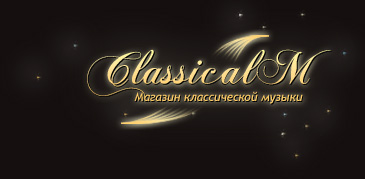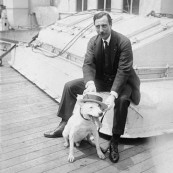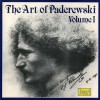| Страна: | Соединенные Штаты Америки |
| Период: | XX век |
БИОГРАФИЯ
Ernest Henry Schelling (26 July 1876 - 8 December 1939) was an American pianist, composer, and conductor.
Born in Belvidere, New Jersey, Schelling was a child prodigy. His first teacher was his father. He entered the Academy of Music in Philadelphia at age 4. At age 7, Schelling traveled to Europe to study. He was admitted to the Paris Conservatoire. While in Europe he worked with many great masters including Percy Goetschius, Hans Huber, Richard Barth, Moritz Moszkowski and Theodor Leschetizky. At the age of 20, he began studying with Ignace Paderewski and was his only pupil for three years. He toured Europe and North and South America, gaining a reputation as a remarkable pianist.[1]
Schelling wrote numerous works for piano, orchestra and chamber groups which were often performed during his lifetime, but have since fallen from the repertoire. His most popular work was A Victory Ball, a symphonic poem for orchestra based on an anti-war poem by Alfred Noyes. Willem Mengelberg and the New York Philharmonic Orchestra made an early electrical recording of the music for the Victor Talking Machine Company.
He was elected an honorary member of Phi Mu Alpha Sinfonia Fraternity, the national fraternity for men in music, in 1917 by the Fraternity's Alpha Chapter at the New England Conservatory of Music in Boston, Massachusetts.
Schelling was the first conductor of the Young People's Concerts of the New York Philharmonic. The first concert was held March 27, 1924. The concerts were designed to encourage the love of music in children. They combined the orchestra's performance with a lecture about one aspect or another of the orchestra or the music itself with a picture or demonstration, so that children were exposed to a variety of stimuli. The concerts were highly appreciated by children, as well as their parents. Schelling held these concerts in New York, and also took them on the road. Such cities as Philadelphia, London, Rotterdam and Los Angeles hosted them.[1]
His first wife was Lucie Howe Draper, whom he married in 1905; she died in 1938.
His second wife, whom he married in August 1939, when she was 21 and he was 63, was Helen Huntington "Peggy" Marshall, the stepdaughter of the philanthropist Brooke Astor and a niece of Vincent Astor.
That same year, Ernest Schelling died suddenly of a cerebral embolism at his home in Manhattan. His four-month bride was at his deathbed-side.







